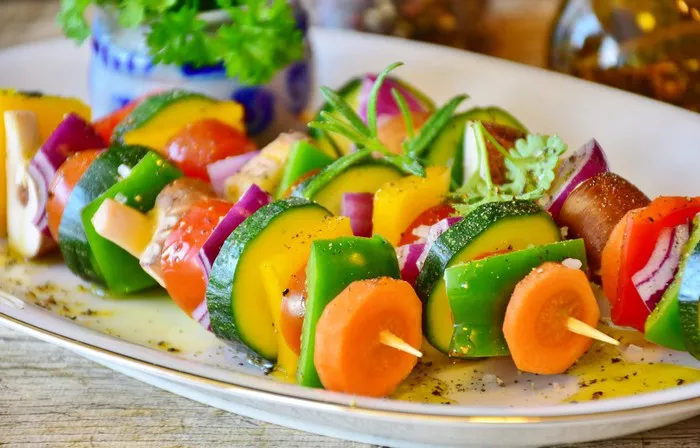Pregnancy is a time of joy and anticipation. However, it also comes with responsibilities, especially regarding diet. A healthy diet is crucial for the development of the baby and the well-being of the mother. Certain foods can pose risks during pregnancy. This article will detail what pregnant women should avoid eating, why it’s important, and safer alternatives.
1. Raw or Undercooked Seafood
Why Avoid Raw Seafood? Raw seafood can contain harmful bacteria and parasites. Common infections include listeriosis and salmonellosis, which can harm both the mother and the unborn child.
Specific Types to Avoid:
- Sushi: This often contains raw fish, which can harbor parasites.
- Oysters and Clams: These can carry bacteria that cause foodborne illness.
- Ceviche: Often made with raw fish marinated in citrus juice, this may not kill all parasites.
Safer Alternatives: Cook seafood thoroughly to an internal temperature of 145°F (63°C). Opt for well-cooked shrimp, salmon, or tuna.
2. Unpasteurized Dairy Products
Why Unpasteurized Dairy is Risky: Unpasteurized dairy products can contain listeria, a bacteria that can lead to miscarriage or stillbirth.
Products to Avoid:
- Soft Cheeses: Feta, Brie, and Camembert can be unpasteurized.
- Raw Milk: This is directly from cows and has not been pasteurized.
Safer Alternatives: Choose pasteurized dairy products. Most cheese in stores is pasteurized. Look for labels that say “pasteurized.”
3. Processed Meats
The Dangers of Processed Meats: Processed meats often contain preservatives and can harbor harmful bacteria. Consuming them can increase the risk of foodborne illnesses.
Meats to Avoid:
- Hot Dogs: These can contain listeria.
- Deli Meats: Ham, salami, and turkey can be contaminated.
Safer Alternatives: If consuming processed meats, heat them until steaming hot (165°F or 74°C).
4. Raw Eggs
Why Raw Eggs are Dangerous: Raw eggs can contain Salmonella, leading to food poisoning. This is especially risky during pregnancy when the immune system is compromised.
Foods to Avoid:
- Raw Cookie Dough: Often made with raw eggs.
- Homemade Mayonnaise: Typically contains raw eggs.
- Some Dressings: Certain Caesar dressings may use raw eggs.
Safer Alternatives: Use pasteurized eggs or egg substitutes in recipes to minimize risks.
5. Certain Fish with High Mercury Levels
Why Mercury is Harmful: High levels of mercury can affect fetal brain development. Pregnant women should limit their intake of mercury-rich fish.
Fish to Avoid:
- Shark
- Swordfish
- King Mackerel
- Tilefish
Safer Alternatives:
Choose fish lower in mercury, such as:
- Salmon
- Shrimp
- Catfish
6. Caffeine
Why Limit Caffeine: High caffeine intake during pregnancy may lead to miscarriage or low birth weight. It can cross the placenta and affect the fetus.
Sources of Caffeine to Watch:
- Coffee
- Tea
- Soda
- Chocolate
Safer Alternatives: Limit caffeine to less than 200 mg per day. Choose decaffeinated coffee or herbal teas.
7. Alcohol
The Risks of Alcohol: There is no safe amount of alcohol during pregnancy. Alcohol can lead to fetal alcohol spectrum disorders (FASD), which can cause lifelong problems.
Types of Alcohol to Avoid:
- Beer
- Wine
- Spirits
Safer Alternatives: The safest option is to avoid alcohol entirely during pregnancy.
8. High-Sugar Foods
Why Limit Sugar: Excess sugar can lead to excessive weight gain and gestational diabetes. It may also increase the risk of dental issues.
Foods to Avoid:
- Sugary Snacks: Candy, pastries, and sugary cereals.
- Sugary Drinks: Soda, fruit juices with added sugar, and energy drinks.
Safer Alternatives: Choose fruits for sweetness. Opt for natural snacks like nuts or yogurt without added sugars.
9. Foods High in Sodium
Why Too Much Sodium is Bad: Excess sodium can lead to high blood pressure and water retention, which are risky during pregnancy.
Foods to Avoid:
- Processed Foods: Canned soups, frozen dinners, and salty snacks.
- Fast Food: Often contains high sodium levels.
Safer Alternatives: Cook at home using fresh ingredients. Season with herbs and spices instead of salt.
10. Herbal Teas and Supplements
Why Be Cautious with Herbal Teas: Not all herbal teas are safe during pregnancy. Some can lead to contractions or other issues.
Herbs to Avoid:
- Sage
- Ginger (in high amounts)
- Licorice Root
Safer Alternatives: Stick to herbal teas known to be safe, like peppermint or ginger in moderation. Always check with a healthcare provider before trying new herbal products.
11. Certain Fruits and Vegetables
Why Be Careful with Certain Produce: Some fruits and vegetables can carry bacteria or harmful substances.
Foods to Avoid:
- Unwashed Produce: Can contain pesticides or bacteria.
- Sprouts: Raw sprouts can harbor harmful bacteria like E. coli.
Safer Alternatives: Always wash fruits and vegetables thoroughly. Cook sprouts before consumption.
12. Highly Processed Foods
Why Avoid Processed Foods: These often contain unhealthy fats, sugars, and preservatives that can negatively affect health.
Foods to Avoid:
- Chips and Packaged Snacks
- Fast Food
- Frozen Meals
Safer Alternatives: Focus on whole, unprocessed foods. Cook meals from scratch whenever possible.
Conclusion
Pregnancy is a critical time to pay attention to what you eat. Avoiding certain foods can help ensure the health of both mother and baby. Always consult a healthcare provider for personalized advice. A balanced diet rich in fruits, vegetables, lean proteins, and whole grains can help create a healthy environment for your growing baby. Remember, making informed food choices is a vital step in having a healthy pregnancy.
Related topics:



























